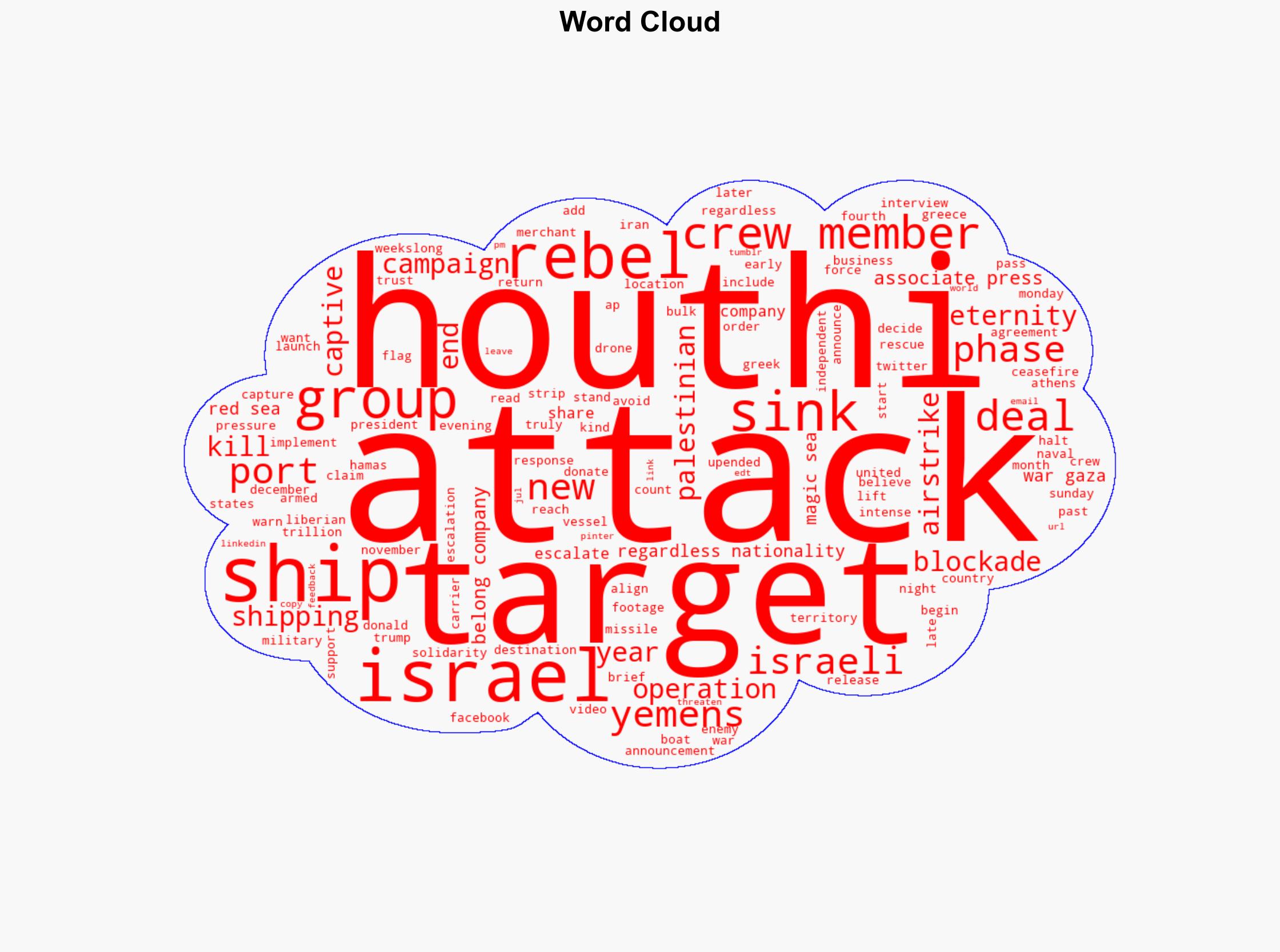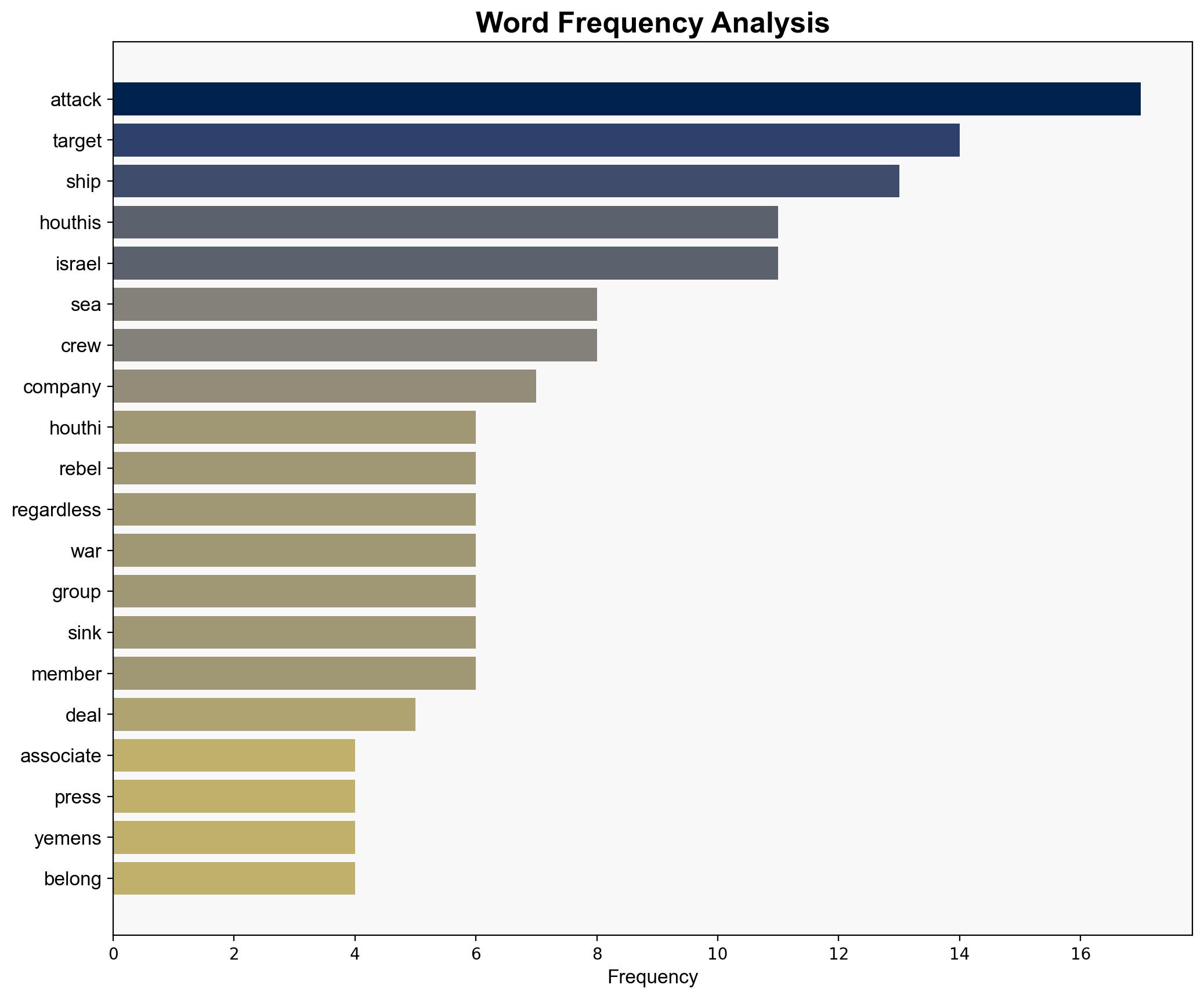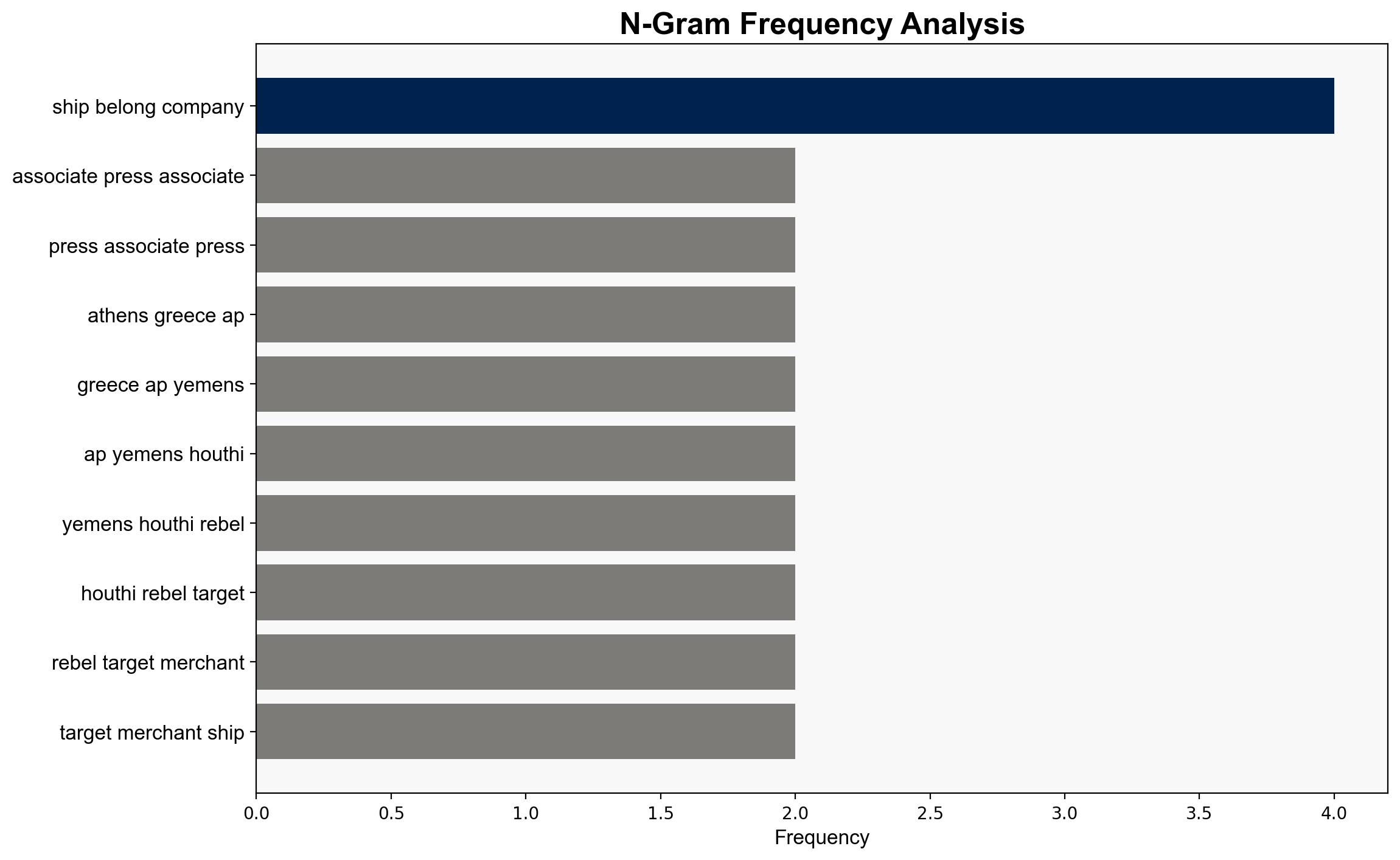Houthis threaten to escalate attacks on ships linked to companies dealing with Israel – PBS
Published on: 2025-07-28
Intelligence Report: Houthis threaten to escalate attacks on ships linked to companies dealing with Israel – PBS
1. BLUF (Bottom Line Up Front)
The Houthis’ threat to escalate attacks on ships associated with Israeli-linked companies indicates a potential increase in regional maritime insecurity. The most supported hypothesis is that these threats are part of a broader strategy to pressure Israel amidst the ongoing Israel-Hamas conflict. Confidence level: Moderate. Recommended action: Enhance maritime security measures in the Red Sea and engage in diplomatic efforts to de-escalate tensions.
2. Competing Hypotheses
1. **Hypothesis A**: The Houthis are escalating attacks as a direct response to the Israel-Hamas conflict, aiming to exert pressure on Israel by disrupting maritime trade.
– **Supporting Evidence**: The timing of the escalation aligns with the ongoing conflict, and the Houthis have explicitly stated solidarity with Palestinians.
– **Structured Analysis**: Using ACH 2.0, this hypothesis is supported by the alignment of Houthi statements and actions with geopolitical events.
2. **Hypothesis B**: The Houthis are using the conflict as a pretext to advance Iran’s strategic interests in the region, disrupting shipping to weaken Israeli economic interests.
– **Supporting Evidence**: Iran’s backing of the Houthis and historical patterns of using proxies to destabilize adversaries.
– **Structured Analysis**: Cross-Impact Simulation suggests this hypothesis is plausible given Iran’s regional strategy but lacks direct evidence linking recent Houthi actions to Iranian directives.
3. Key Assumptions and Red Flags
– **Assumptions**: Assumes Houthis have the capability and intent to significantly disrupt maritime trade. Assumes Iran’s influence over Houthi actions is substantial.
– **Red Flags**: Lack of direct evidence linking recent actions to Iranian directives. Potential bias in interpreting Houthi statements as solely politically motivated.
– **Blind Spots**: Limited insight into internal Houthi decision-making processes and potential external influences beyond Iran.
4. Implications and Strategic Risks
– **Economic**: Disruption of shipping routes could impact global trade, particularly affecting goods passing through the Red Sea.
– **Geopolitical**: Escalation could draw in regional and global powers, increasing tensions in the Middle East.
– **Psychological**: Heightened insecurity may deter commercial shipping, impacting regional economies.
– **Cascading Threats**: Potential for retaliatory actions by Israel or other affected nations, leading to broader conflict.
5. Recommendations and Outlook
- Enhance naval patrols and surveillance in the Red Sea to deter and respond to potential attacks.
- Engage in diplomatic dialogue with regional stakeholders to address underlying tensions.
- Scenario Projections:
- Best Case: Diplomatic efforts lead to de-escalation and resumption of normal shipping operations.
- Worst Case: Escalation leads to broader regional conflict, severely impacting global trade.
- Most Likely: Continued sporadic attacks with limited but significant disruptions to shipping.
6. Key Individuals and Entities
– Houthis (Yemeni rebel group)
– Israeli-linked companies operating in maritime trade
– Iran (potential influence on Houthi actions)
7. Thematic Tags
national security threats, maritime security, regional conflict, geopolitical strategy




